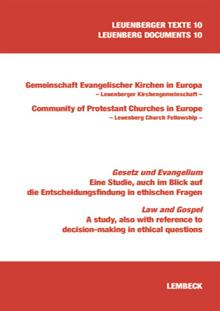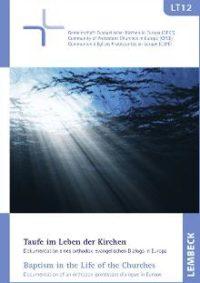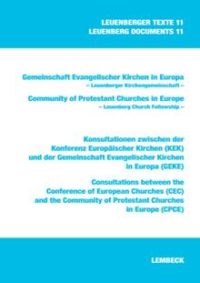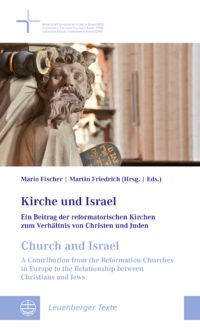Description
It is one of the most demanding tasks for theology to define the relationship between law and gospel rightly. On one hand, a distinction between law and gospel has to be made which is as precise as possible. In this way the gospel can unfold in all its power as the message of God’s free grace. On the other hand, one has to remember that the gospel enables men to judge their actions by the will of God as they face it in God’s commandments. The relation both between law and gospel and between gospel and law has been present in the doctrinal conversations of the Leuenberg Church Fellowship from the beginning. This is due to the question itself: by dealing with the gospel the theme of God’s will, which demands and gives, arises immediately – as one will see by comparing the sections 7-9 of the Leuenberg Agreement with the sections 10-11. However, the relationship between law and gospel became the explicit subject of a study: the 4th General Assembly of the Leuenberg Church Fellowship (since 2003 the Community of Protestant Churches in Europe – CPCE) meeting in Vienna to make the topic “Law and gospel – also with reference to decision-making in ethical questions” decided to give a special priority to this topic in the further theological work.
Definitely the growing degree of difficulty in the topic is reflected in the study. The connection between law and gospel cannot simply be clarified by referring back to the questions asked in the sixteenth century. Nor can it be clarified by disregarding the more recent findings of biblical scholarship or by leaving out of account the questions which arise from other confessions or religious contexts. Nor can the connection be-tween law and gospel be isolated from the ethical decisions which churches and Christians face in our time – the art of distinguishing correctly between law and gospel will prove of value particularly in the contexts of living a responsible life. The study clearly has taken into account all these perspectives. It thus provides new criteria for future engagement with the topic, whether in the churches, in the sphere of academic theology, or in future doctrinal conversations of the CPCE. But it also has proved that reflection on the relationship between law and gospel must go on. May the insights gained in this study turn out to be an inspiring and helpful stimulus.



